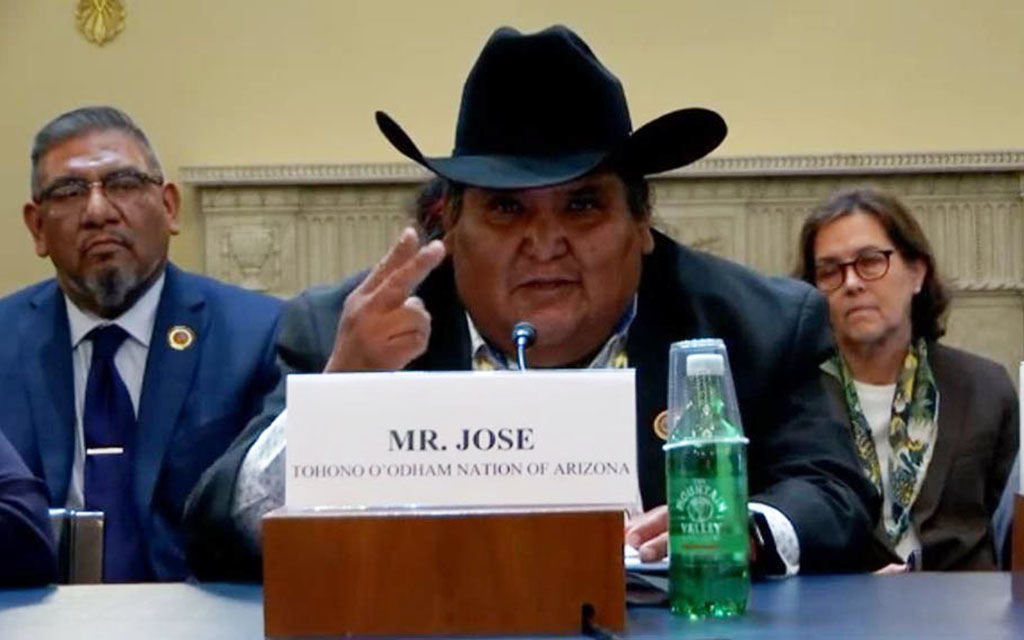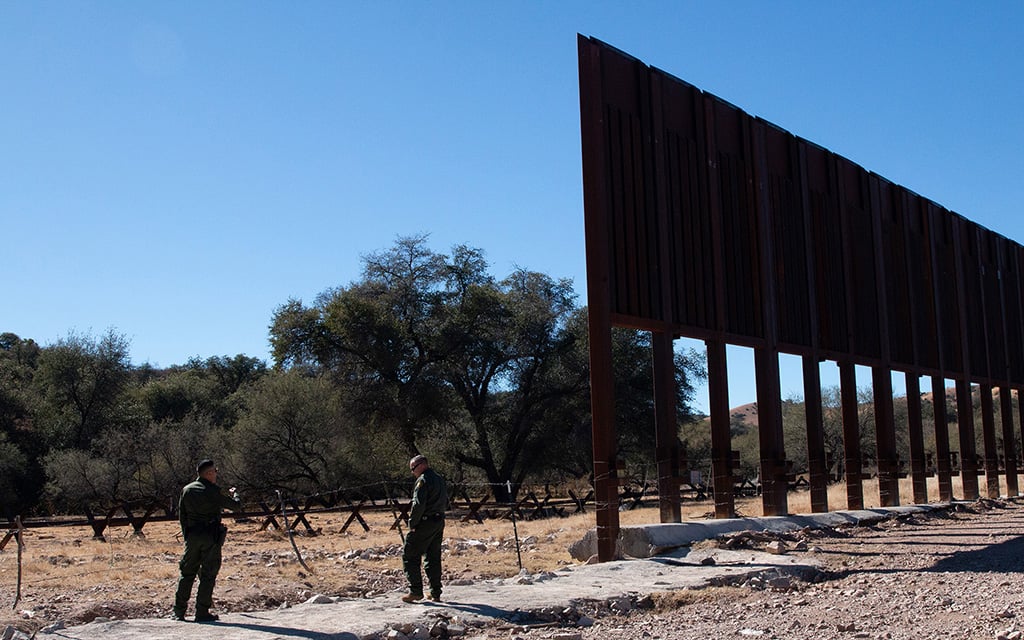WASHINGTON – Tohono O’odham Chairman Verlon Jose told a House panel Wednesday that while migrants crossing his reservation are causing problems, those are overshadowed by problems from the construction of the border wall meant to stop migration.
“Construction of a wall on federal lands near our reservation also interferes with the flow of scarce, vital water resources on which plants and wildlife depend. Our tribal members rely on these plants for food, medicine and cultural purposes,” Jose said in his testimony.
His comments came during a House Natural Resources subcommittee hearing on the federal government’s recent decision to use Floyd Bennett Field, a National Park Service site in Brooklyn, as an emergency housing site for some of the thousands of migrants who have recently been shipped to New York from the border.
Republicans on the committee criticized the Biden administration for using public lands for migrant housing and circumventing the National Environmental Policy Act to erect the migrant housing on an emergency basis.
They also grilled National Park Service and Forest Service witnesses about the impact of migrants crossing public lands, leaving trash and potentially harming the environment.
“With record numbers of migrants crossing into the United States we are seeing increasingly harmful impacts on the environment including trash accumulation, habitat destruction, disturbance of lands and waters and many other issues,” said Rep. Bruce Westerman, R-Ark.
Chris French, the deputy chief of the U.S. Forest Service’s National Forest Systems, acknowledged that the trash and environmental harm caused by migrants is a problem – but he said it is not a new one.
“This has been a continuous problem for decades, of us removing trash and other natural resources and visitor effects that occur in our international border,” French said.
Republicans also harped on the fact that the Biden administration waived NEPA to clear the way for housing at Floyd Bennett Field.
“The administration must wake up to the illegal immigration crisis and come to the table to work with Congress to secure our border and addressing the dangers and environmental impacts of our public lands,” Westerman said.
But Rep. Raul Grijalva, D-Tucson, accused Republicans of employing a double standard on NEPA, ignoring it when it comes to mining and drilling – and building a border wall – but not when it comes to migrants on public lands.
“NEPA is like a love-hate thing … for the Republicans on this committee,” Grijalva said. “When it’s convenient to use it as an issue, NEPA is wonderful, but when it’s in the way of a mine, or an extraction or a drill, then it’s absolutely awful and we have to get rid of it.”
Grijalva called the hearing little more than a GOP attempt to use national parks to get headlines on immigration, and to push for the border wall.
“Continue the wall? It failed,” Grijalva said. “It didn’t do its job, as much as it was ballyhooed and talked about, it’s become political rhetoric and a political symbol. In terms of deterrence, it does not work.”

Tohono O’odham Chairman Verlon Jose told a House panel that migrants crossing his tribe’s reservation may cause problems, but that the construction and presence of the border wall has caused bigger problems. (Photo courtesy House Natural Resources Committee)
That was echoed by Jose, who said his tribe has been left with irreversible consequences to the ecosystem and land from both the construction and current state of the wall. He pointed to a Government Accountability Office report that he said put the Army Corps of Engineers price tag for border construction at more than $10 billion by the end of 2020.
“Billions more have and will continue to be needed to mitigate the environmental and cultural harms caused by construction,” Jose said of the report.
Jose acknowledged that there were migrants coming into the country illegally and crossing the Tohono O’odham reservation in the process. But it’s not the biggest part of the immigration problem, he said.
“There is migrants coming up, there is illegal activity coming up,” Jose said. “But the majority of that stuff is coming up through the ports of entry or the places where there is a wall … is there some coming across Tohono? Yes.”
The contentious, two-hour hearing included a lot of petty jabs but few possible solutions. Jose may have had the best answer to the migration problem, even if it was the least likely – a magic wand.
“I’d wave that magic wand across and create true immigration reform,” he said.

